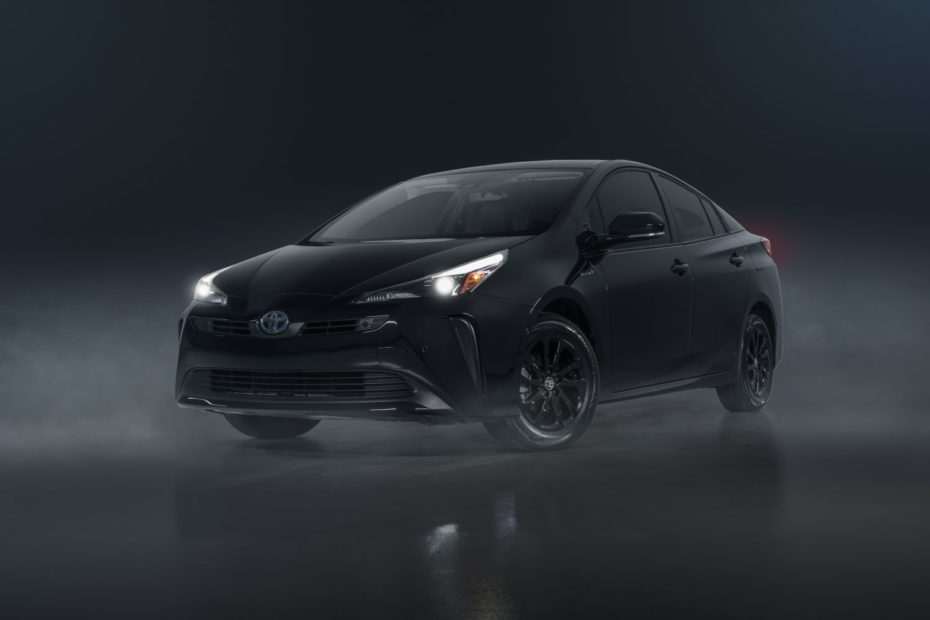Remember back in the ’90s when learning about a car that can run on a battery was surprising news? How things have changed since then, and ever since the Prius debuted in 1997, it has been an innovator in fuel efficiency. Toyota’s Prius wasn’t the first gasoline-electric model ever to exist on the planet. Still, it is the vehicle at car dealerships serving Garden Grove Ca that everyone tips their hat off to for bringing the technology to the forefront.
A Hydrogen Prius
There have been some rumors flying around Toyota serving Garden Grove car dealers that the next Prius will blow everyone’s socks off because it will be available with a hydrogen-electric system. It seems like Toyota is on a mission to make hydrogen cars a must-have, so Prius will be joining the Mirai to make this happen. Although experts at car dealerships say that the Mirai has fuel cell technology that uses hydrogen to generate the electricity it requires to spin the wheels, the next Prius will probably receive a hydrogen-burning engine comparable to the three-cylinder unit that Toyota constructed for its experimental Corolla race car that occurred in early 2021. It will work hand in hand with the next evolution of Toyota’s hybrid system, which includes a battery pack, the necessary electronics, and a motor.
When Will The Hydrogen Prius Be Available?
Everyone at car dealerships serving Garden Grove Ca loves the sheer joy and simplicity you feel when you lap around a track. Racing around in a prototype is child’s play. However, manufacturing a car that thousands of drivers can rely on daily, in a mélange of conditions, is a different kettle of fish. And for this very reason, we will have to wait patiently until 2025 to see the arrival of the hydrogen-electric Prius. Also, we still aren’t sure whether this hydrogen infrastructure will be available in the United States, where the hydrogen infrastructure is gradually progressing. However, there is a lot of confidence that Japan may be its largest market.
The Prius kind of needs that pioneering spirit back in its corner, and many believe that hydrogen will make the Prius catch everyone’s eye in the Toyota range once again. When it first appeared, the technology it had took everyone’s breath away because it was so out-of-the-box. Now, 24 years after it blew everyone’s minds, there are ten hybrids in the Toyota lineup, many of which utilize the same basic system as the Prius.
Will Every Prius Be Hydrogen?
Not necessarily. There have been whispers that not every version of the Prius will have a hydrogen configuration. The model is said to arrive in 2022, meaning it will receive a 2023 brand model in America with a more conventional gasoline-electric hybrid powertrain constructed around a 1.8-liter four-cylinder engine.
Also, the plug-in hybrid prime will be charming us once again, possibly with powertrain improvements that boost its electric range. Toyota hasn’t been very vocal about the rumors. Still, it has iterated that it is invested in establishing hydrogen technology, and it hasn’t spilled the beans about the fifth-generation Prius.
Does Toyota Have Plans For Other Hydrogen Cars?
Yes, indeed it does. It goes without saying that they had to make their fan favorite, the Toyota Corolla, hydrogen as well. There has been some buzz that Toyota plans to launch a hydrogen-powered Corolla by 2023. This car has competed in Japan’s only one-day race, “The 24 Hours of Fuji,” using a hydrogen-powered Corolla. It will be similar to the fuel cell car as the Mira is but will use hydrogen to power its engine. There are dual purposes for this change: to reach its end goal of carbon neutrality by 2050 and to enhance fuel consumption throughout the range.
Toyota’s Mission: Carbon Neutrality By 2050
Besides achieving its goal of carbon neutrality by 2050 and improving fuel economy, Toyota will utilize its motorsports program to push for hydrogen as a feasible alternative to electric cars. Recently, the Japanese car company has just launched its second-generation Hydrogen Fuel Cell Mirai sedan. Nonetheless, this is the first instance Toyota has operated a hydrogen-powered car.
Are The Mirai, Prius, and Corolla The Same Car?
Remember that the powertrain for the Mirai, Prius and Corolla race car for 2023 is not the same. For instance, the Mirai produces electricity to power its engines, which initiates a chemical reaction between hydrogen and oxygen in fuel cells. Also, the next-generation Prius will use hydrogen to power its plug-in hybrid system rather than gasoline. While on the flip side, the hydrogen-powered vehicles we expect to see in the future, like the Corolla twin motor cars, burn hydrogen rather than gasoline.
Toyota’s Versatility May Help To Win The Race
Unfortunately, the media hasn’t been too kind towards Toyota and its keen interest to move forward with hydrogen-powered cars instead of shifting their focus more on what is currently trending – electric vehicles. Nevertheless, the carmaker ignores the naysayers and leaves their blinkers on to move ahead with their vision of becoming more versatile ‘mobility providers’ and go for an equal combination of powertrain technologies throughout their complete lineup. This amalgamation includes electric vehicles, fuel cell cars like the Mirai, hydrogen engines such as the Corolla, hybrids, and plug-in hybrids.
Indeed, Toyota has been slow to get into the groove of electric cars. Still, a Toyota spokesperson said in 2019 that the car company could only produce enough batteries for 28,000 electric vehicles each year, or 1.5 million cars. Another factor to consider is emissions. Toyota claims that 1.5 million sales of hybrid vehicles lower carbon emissions by a third more than selling 28,000 electric cars. At the end of the day, the car company’s carbon footprint decreases if they sell a lot more gasoline-electric hydrogen hybrid vehicles.
